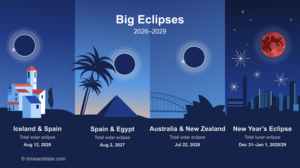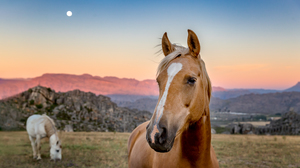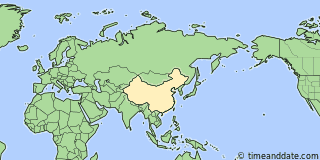| Current Time: | Sep 11, 2025 at 2:04:26 am |
|---|---|
| Moon Direction: | ↑ 107° East |
| Moon Altitude: | 53.4° |
| Moon Distance: | 364,812 km |
| Next New Moon: | Sep 22, 2025, 3:54 am |
| Next Full Moon: | Oct 7, 2025, 11:47 am |
| Next Moonset: | Today, 11:23 am |
Moonrise, Moonset, and Phase Calendar for Shigatse, October 2025
Scroll right to see more
| 2025 | Moonrise/Moonset | Meridian Passing | ||||||||
|---|---|---|---|---|---|---|---|---|---|---|
| Oct | Moonrise | Moonset | Moonrise | Time | Distance (km) | Illumination | ||||
| 1 | - | 1:31 am | ↑ (238°) | 4:11 pm | ↑ (120°) | 9:20 pm | (35.1°) | 390,383 | 65.4% | |
| 2 | - | 2:32 am | ↑ (242°) | 4:53 pm | ↑ (115°) | 10:11 pm | (39.1°) | 384,323 | 75.2% | |
| 3 | - | 3:34 am | ↑ (247°) | 5:30 pm | ↑ (110°) | 11:01 pm | (44.4°) | 377,981 | 84.2% | |
| 4 | - | 4:38 am | ↑ (253°) | 6:04 pm | ↑ (103°) | 11:49 pm | (50.7°) | 371,901 | 91.6% | |
| 5 | - | 5:42 am | ↑ (261°) | 6:36 pm | ↑ (95°) | Moon does not pass the meridian on this day. | ||||
| 6 | - | 6:48 am | ↑ (269°) | 7:09 pm | ↑ (87°) | 12:38 am | (57.7°) | 366,615 | 97.0% | |
|
|
- | 7:54 am | ↑ (277°) | 7:43 pm | ↑ (79°) | 1:27 am | (65.0°) | 362,639 | 99.7% | |
| 8 | - | 9:04 am | ↑ (286°) | 8:20 pm | ↑ (71°) | 2:19 am | (72.2°) | 360,323 | 99.4% | |
| 9 | - | 10:16 am | ↑ (293°) | 9:03 pm | ↑ (64°) | 3:13 am | (78.8°) | 359,883 | 95.9% | |
| 10 | - | 11:29 am | ↑ (299°) | 9:53 pm | ↑ (60°) | 4:12 am | (84.1°) | 361,259 | 89.5% | |
| 11 | - | 12:41 pm | ↑ (302°) | 10:50 pm | ↑ (57°) | 5:15 am | (87.7°) | 364,197 | 80.7% | |
| 12 | - | 1:48 pm | ↑ (303°) | 11:53 pm | ↑ (57°) | 6:19 am | (89.2°) | 368,302 | 70.2% | |
| 13 | - | 2:46 pm | ↑ (302°) | - | 7:21 am | (88.6°) | 373,109 | 58.8% | ||
|
|
1:00 am | ↑ (60°) | 3:35 pm | ↑ (298°) | - | 8:20 am | (86.1°) | 378,176 | 47.3% | |
| 15 | 2:05 am | ↑ (64°) | 4:15 pm | ↑ (293°) | - | 9:14 am | (82.1°) | 383,162 | 36.3% | |
| 16 | 3:08 am | ↑ (69°) | 4:50 pm | ↑ (287°) | - | 10:03 am | (77.1°) | 387,833 | 26.3% | |
| 17 | 4:08 am | ↑ (76°) | 5:20 pm | ↑ (281°) | - | 10:48 am | (71.4°) | 392,056 | 17.5% | |
| 18 | 5:05 am | ↑ (83°) | 5:48 pm | ↑ (274°) | - | 11:30 am | (65.4°) | 395,771 | 10.4% | |
| 19 | 6:00 am | ↑ (90°) | 6:15 pm | ↑ (267°) | - | 12:11 pm | (59.2°) | 398,968 | 5.1% | |
| 20 | 6:54 am | ↑ (96°) | 6:42 pm | ↑ (260°) | - | 12:51 pm | (53.3°) | 401,645 | 1.6% | |
|
|
7:49 am | ↑ (103°) | 7:10 pm | ↑ (254°) | - | 1:32 pm | (47.6°) | 403,790 | 0.1% | |
| 22 | 8:44 am | ↑ (109°) | 7:40 pm | ↑ (248°) | - | 2:14 pm | (42.5°) | 405,354 | 0.6% | |
| 23 | 9:40 am | ↑ (114°) | 8:14 pm | ↑ (244°) | - | 2:59 pm | (38.1°) | 406,261 | 3.0% | |
| 24 | 10:36 am | ↑ (119°) | 8:53 pm | ↑ (240°) | - | 3:46 pm | (34.7°) | 406,396 | 7.1% | |
| 25 | 11:33 am | ↑ (122°) | 9:37 pm | ↑ (238°) | - | 4:36 pm | (32.4°) | 405,630 | 12.9% | |
| 26 | 12:28 pm | ↑ (123°) | 10:26 pm | ↑ (237°) | - | 5:27 pm | (31.5°) | 403,842 | 20.2% | |
| 27 | 1:19 pm | ↑ (123°) | 11:21 pm | ↑ (238°) | - | 6:19 pm | (32.1°) | 400,941 | 28.6% | |
| 28 | 2:06 pm | ↑ (121°) | - | - | 7:11 pm | (34.1°) | 396,918 | 38.1% | ||
| 29 | - | 12:20 am | ↑ (241°) | 2:48 pm | ↑ (117°) | 8:02 pm | (37.4°) | 391,838 | 48.3% | |
|
|
- | 1:20 am | ↑ (245°) | 3:25 pm | ↑ (112°) | 8:50 pm | (42.0°) | 385,917 | 58.9% | |
| 31 | - | 2:21 am | ↑ (251°) | 3:59 pm | ↑ (106°) | 9:38 pm | (47.7°) | 379,453 | 69.4% | |
| * All times are local time for Shigatse. They take into account refraction. Dates are based on the Gregorian calendar. Illumination is calculated at lunar noon. | ||||||||||
Jan | Feb | Mar | Apr | May | Jun | Jul | Aug | Sep | Oct | Nov | Dec
Elsewhere on mungfali.galihkartiwa07.workers.dev

4 Eclipses Not to Miss 2026–2029
Some eclipses, like this month’s partial solar eclipse, can be very elusive. We’ve compiled a list of upcoming eclipses you can get to in real life.

Skywatching Tips for September 2025
What’s up in the day and night sky in September 2025, including a Blood Moon and a partial lunar eclipse.

Moon Guide for September 2025
Discover the phases of the Moon in September 2025, plus a total lunar eclipse and the New Moon partially eclipsing the Sun.

Full Moon Names
Ancient cultures gave names to the Full Moon. These names are still in use today.
